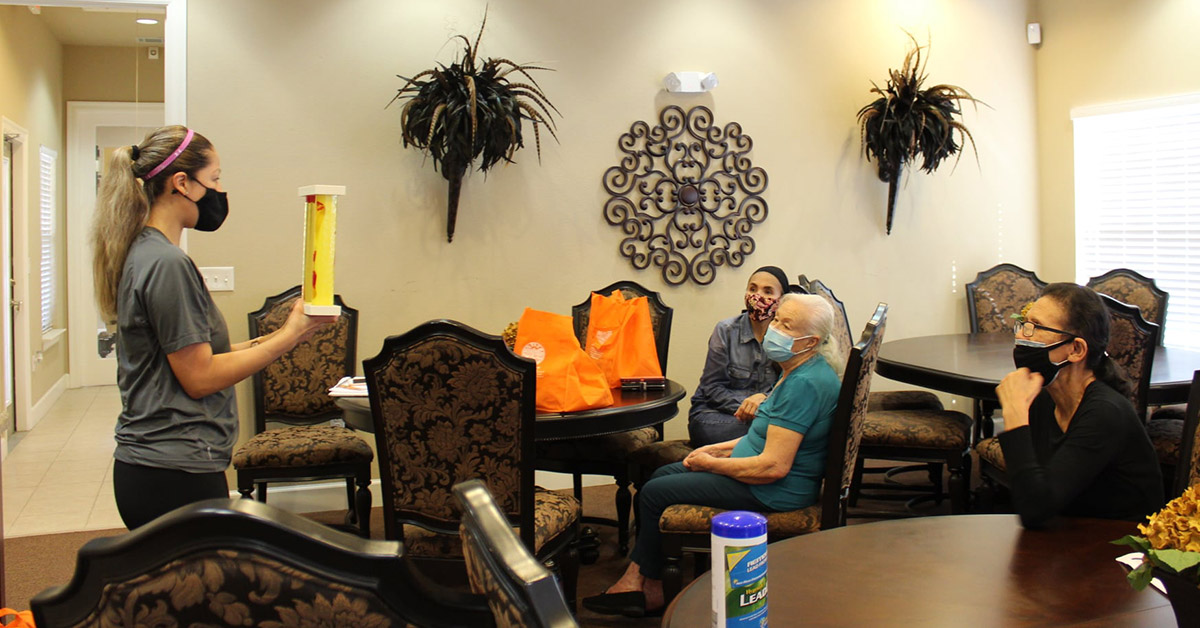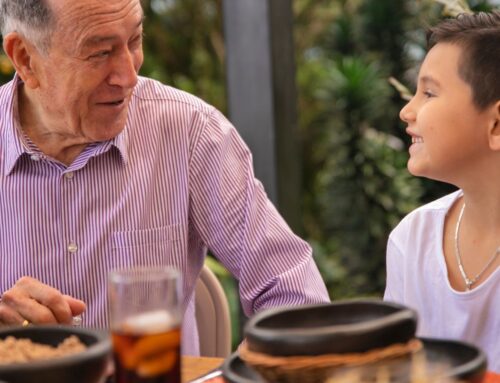Impacts of COVID-19 on Children of Farmworkers
Managing Diabetes Series
Published February 2021 | Back to news and articles.
Diabetes Prevalence Among Migrant and Seasonal Agricultural Workers
Migrant and Seasonal Agricultural Workers (MSAWs) are often exposed to hazardous working conditions, long hours, extreme heat, and the physical demands of the work which can be tiresome. As more than 80% of MSAWs in the U.S. are Latino/Hispanic, MSAW communities are also more likely to experience certain chronic conditions that disproportionately impact Latino/Hispanic populations, like type II diabetes.1,2
Naturally, diabetes management and care are often difficult for MSAW communities. MSAWs are more likely to have poor general health and limited finances and face additional barriers (i.e., limited transportation or lack of access to healthy foods). These actors negatively impact chronic illnesses, such as diabetes. Moreover, because MSAWs are more likely to live in migrant camps or other low-income housing, their families face similar structural barriers to maintaining good health, such as lack of access to healthy foods or education on healthy eating. 2,4
Challenges for Children of Migrant Farmworkers
It is not uncommon for children of MSAWs to work in the fields with their parents, as federal child labor laws allow children under 12 years old to work alongside their parents.3 Just as their parents are exposed to harsh and dangerous working conditions, youth migrant workers also experience these conditions. Unfortunately, in cases where the entire family works as migrant farmworkers, this leaves little opportunity for children to receive home-cooked meals, healthy food, regular or substantial meals, or education on healthy eating and wellbeing.2-4
Virtual Learning
The Covid-19 pandemic has changed working and schooling for everyone around the world. Children who are not working in the fields are generally attending school virtually and caring for younger siblings at home. Unfortunately, this means children have less at-home support or resources for virtual learning (i.e., technology access). Additionally, major consequences of the transition to online learning for children, in general, has been on children’s sleeping habits, poor learning environment, mental health, and the amount of time children spend on digital devices (i.e., too much screen time).5
Physical Activity
MSAW families are less likely to have access to public playgrounds or other outdoor facilitates (i.e., soccer fields.). Additionally, with virtual schooling, children are less involved in physical activity classes or sports activities. These circumstances such as a sedentary lifestyle, limited exercise, and a poor diet, are major risk factors for chronic diseases, like type II diabetes.6
Cultural and Linguistic Risk Factors
There are cultural and linguistic factors that also impact diabetes management and control among Latino and MSAW communities. These include exposure to different health practices/systems, diets containing unhealthy foods, or limited English language skills (i.e., when diabetes educational materials are only available in English). Unfortunately, this also means that children of MSAWs are more likely to lack education on diabetes prevention or management.4-6
CHW Addressing Diabetes
A Community Health Worker (CHW) is a trusted member of the community they serve. CHWs work in both clinical and non-clinical settings and provide referrals to local organizations that assist with health and social services. CHWs meet participants where they are – at home, at work, or out in the community – to better reach participants and meet their unique needs.7
While their primary role is often linking vulnerable populations to the health system, additional roles can include cultural mediation, culturally appropriate education, care coordination, case management, systems navigation, coaching and social support, advocacy, capacity building, and outreach. Through these roles, CHWs offer support to patients with diabetes and/or at risk of developing diabetes in a unique culturally appropriate manner. Due to their close understanding of and trust from the community they serve, CHWs have a unique ability to build strong relationships and effectively address challenges individuals face when trying to manage chronic conditions such as diabetes. CHWs also conduct home visits and speak one-on-one with participants on the importance of proper nutrition, physical exercise, and disease management.7,8 Overall, CHW interventions have demonstrated success in improving health outcomes among individuals diagnosed with diabetes and support at-risk individuals to prevent the development of the condition.

A CHW holds up a plastic model that
demonstrates the effects of plaque build-up on the arteries.
CHW-led diabetes programs provide accessible support and education to vulnerable populations so they can live healthier lives. They focus on community-based educational classes led by a CHW and provide educational instruction on how participants can manage their diabetes and maintain a healthy lifestyle. CHWs can understand and culturally identify with the program participants and provide appropriate recommendations that participants will be receptive to based on their available resources and food options.7 For example, MHP Salud’s Juntos Podemos program engages families at-risk for diabetes by teaching families how to exercise, eat and cook healthier, and practice other healthy behaviors that impact chronic diseases (i.e., stress); the program is facilitated by bilingual CHWs.8
Although COVID-19 has challenged how many CHWs deliver services (i.e., telehealth or virtual), CHWs continue to find ways to engage their communities. In our Juntos Podemos program, our CHWs are using WhatsApp, Zoom, and other virtual tools to hold educational sessions.8
Free Technical Assistance for Service Providers and Individuals that Serve Hispanic Older Adults
Our Strengthening Aging Services for Hispanic Older Adults project is holding Virtual Technical Assistance calls to build the capacity of service providers and community members that address issues in the aging Hispanic communities, on the 3rd Wednesday of every month at 2 pm EST. Get information, tips, resources, and more from our experienced team! Reserve your spot now!
- https://www.farmworkerjustice.org/advocacy_program/us-labor-law-for-farmworkers/
- https://www.cdc.gov/diabetes/library/features/hispanic-diabetes.html
- https://www.dol.gov/sites/dolgov/files/WHD/legacy/files/childlabor102.pdf
- https://webapps.dol.gov/elaws/whd/flsa/screen5.asp
- https://www.jhunewsletter.com/article/2020/04/how-online-learning-can-affect-student-health
- https://afop.org/cif/#top
- https://mhpsalud.org/community-health-worker-resources/community-health-workers-diabetes/
- https://mhpsalud.org/programs/our-programs/juntos-podemos/
This publication is supported by the Health Resources and Services Administration (HRSA) of the U.S. Department of Health and Human Services (HHS) as part of an award totaling $753,959.00 with 0 percentage financed with non-governmental sources. The contents are those of the author(s) and do not necessarily represent the official views of, nor an endorsement, by HRSA, HHS or the U.S. Government. For more information, please visit www.HRSA.gov.
Blog Topics
About MHP Salud

MHP Salud has over 35 years of experience implementing CHW programs and training organizations looking to start and/or strengthen their own CHW programs. Visit our CHW Training & Consulting Services page to learn more about how we can help.






